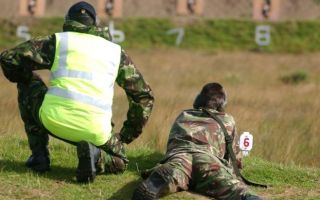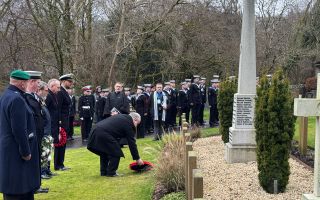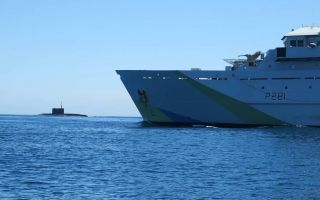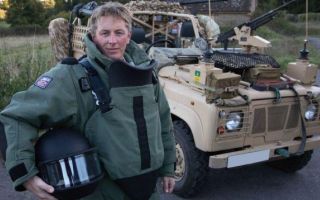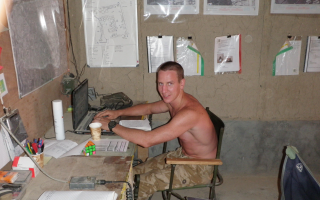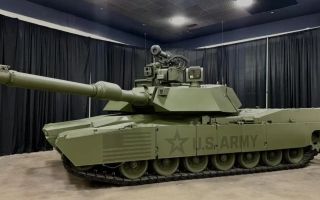Inside The Cyprus Military Working Dog Troop At Episkopi Garrison
Forces News has been given exclusive access to the British military working dogs based at Episkopi Garrison in Cyprus.
The dogs and their handlers are flown to provide spot security checks on the gates of the British bases on the island.
Reporter Sian Grzeszczyk joined them on a helicopter from 84 Squadron as the handlers and their dogs were flown to Dhekelia.
"We’re just making sure that the security is on a good level on the island, so making sure that no-one is coming in and out of the camps with anything that they shouldn’t," Lance Corporal Megan Cropper from the Cyprus Military Working Dog Troop at Episkopi Garrison, told Forces News.
"It’s good for the dogs because it does get them searching for different things.
"It takes about half an hour to fly, whereas in the car it’s over an hour. It’s just quicker and, especially in the heat, it’s just better... it gets them [the dogs] used to being on different aircraft."
These checks happen at random and arriving by helicopter means that LCpl Cropper and her arms and explosives search dog, Labrador Ted, can quickly be in position at the gate – ready to check the vehicles coming in, whether its personnel or contractors.
LCpl Cropper has three dogs assigned to her - Ted, Cocker Spaniel Tiny, who is a vehicle search dog, and Duco - a Belgian Malinois.
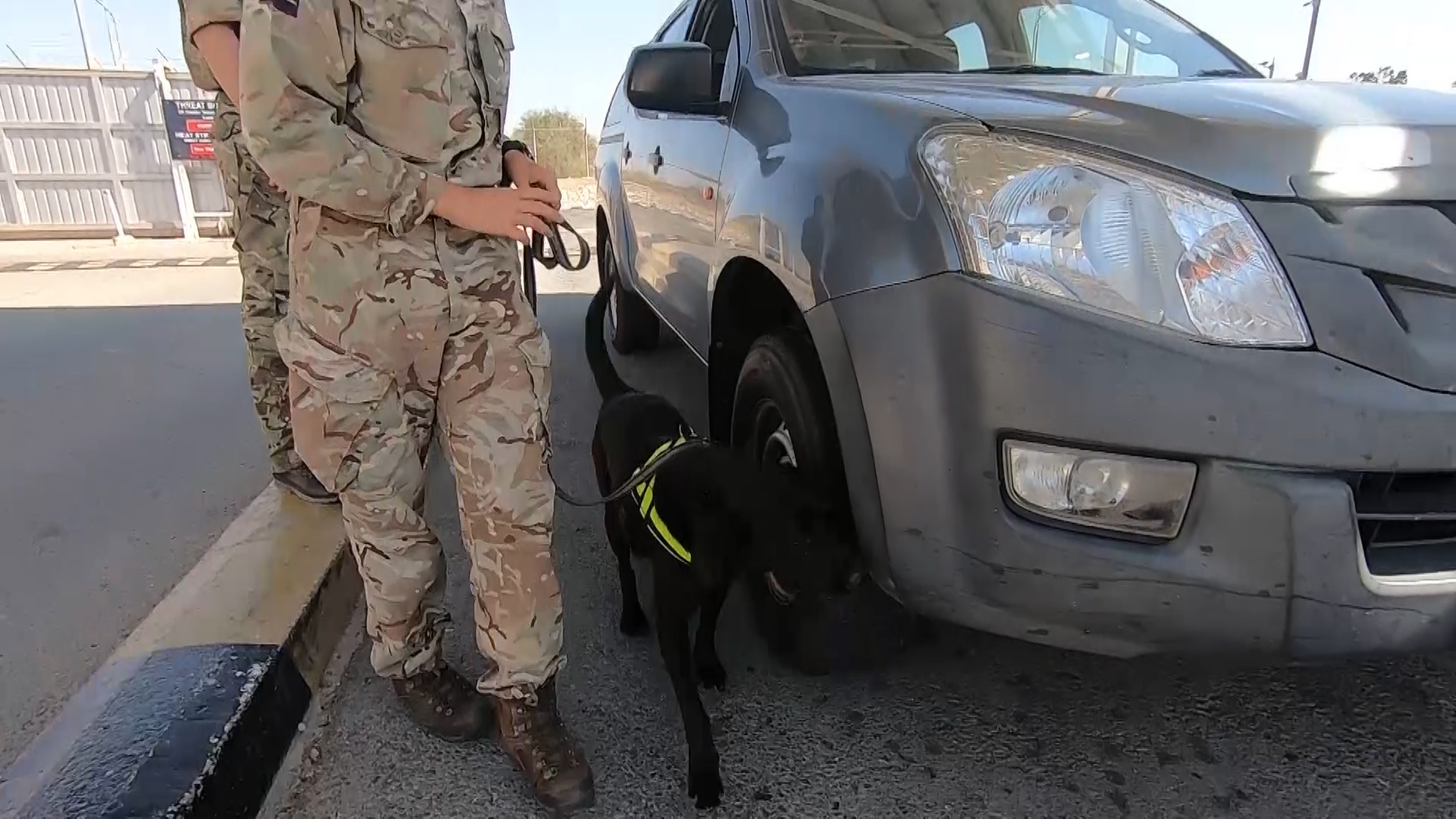
"We have three dogs because we all do different tasks out here - we do protection tasks, vehicle search tasks and arms and explosives search tasks," she explained.
"So we have to have to have the different dogs for out here - if you're back in the UK you normally just handle the one."
And it's Duco - a large dog by nature - who carries out the protection role, using his powerful sense of smell to find potential intruders.
"If there's someone hiding in like a bush, or whatever, 200 or 300 metres away, he will wind scent - basically smell the air - so if there's an intruder or whatever on any of the camps he will be able to pick them up," LCpl Cropper added.
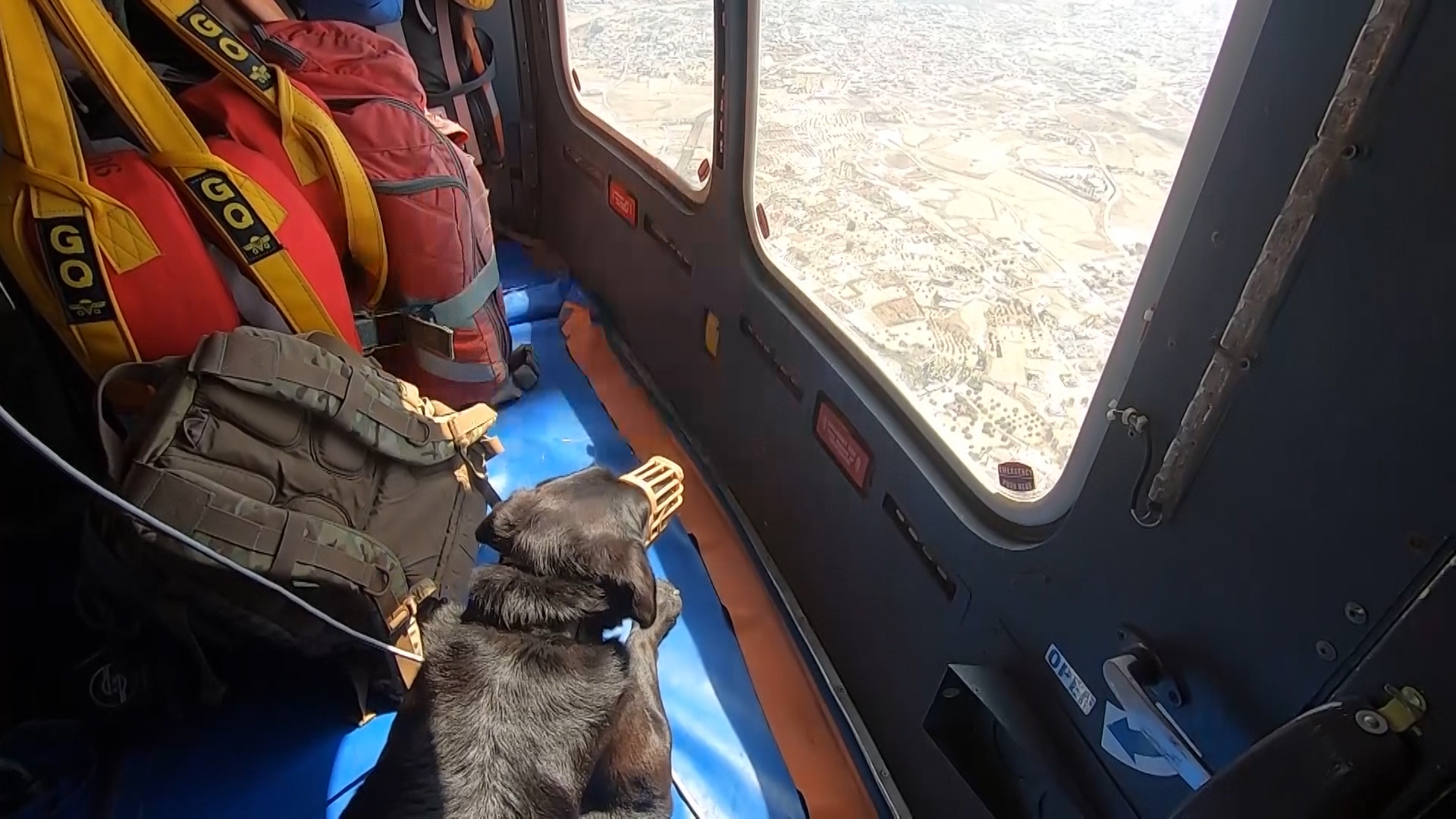
For the dogs, working in Cyprus brings its own challenges.
"In addition to the heat we have to be careful when exercising the dogs during the summer months, especially when they first come out here," said Captain Imogen Walker, Officer Commanding.
"So they have a period of acclimatisation to get them used to doing exercise in the hot weather.
"It’s also quite different terrain. It’s quite rocky and there’s quite a lot of spiky plants and we’ve had a quite a few issues with grass seeds this year getting stuck between their paws and in their ears.
"There’s also a risk of snakes, so there’s venomous snakes on the island. There has in the past been a snake bite and the dog required emergency treatment after a venomous bite.
"So there’s more dangers when they’re out exercising the dogs, but it’s important that we can still let the dogs off lead to get the exercise they need."

